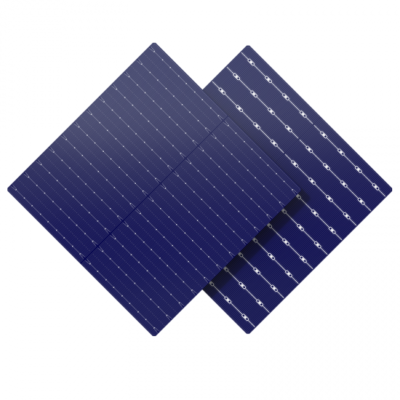
The solar energy sector has seen an exponential growth in the recent years driven by the pressing need to transition towards more renewable and sustainable sources of energy. As a leading solar panels supplier, our company has been at the forefront of this significant shift, promoting the adoption of solar energy. Solar panels, with their promise of clean, renewable energy, have become a mainstay of sustainable energy solutions. However, as the industry expands, a less discussed issue is coming to light – solar panel e-waste. While solar technology provides an invaluable source of renewable energy, it also gives rise to a significant amount of e-waste, a repercussion that often goes unnoticed.
The Concern: Solar Panel E-Waste:
Solar panels, like any other product, have a definite lifespan averaging between 25 to 30 years. Once they reach their end of life, they contribute to the already burgeoning e-waste problem. The process of manufacturing solar panels involves a complex mix of materials, many of which are non-degradable, posing a significant environmental challenge. The resulting waste not only consumes a substantial amount of space but also risks wasting critical raw materials that could otherwise be reused or recycled.
Problems with Existing Disposal Methods:
The current methods of disposal at our disposal are, unfortunately, largely inefficient and greatly contribute to the escalation of the e-waste crisis. These methods often involve the use of landfills or incineration, both of which have serious environmental implications. Landfilling, for instance, poses the risk of harmful substances leaching into the soil and contaminating groundwater. Incineration, on the other hand, can release toxic fumes into the air. Moreover, these methods fail to recover the valuable materials contained in the panels, such as silver and silicon, leading to a further depletion of these resources.
Effective Solutions for Addressing Solar Panel E-Waste:
To counter this issue, it is crucial to develop and implement more effective and environmentally-friendly solutions. Advances in recycling methods and material recovery techniques can play an instrumental role in mitigating the problem. For instance, new technologies that allow for more efficient extraction and reuse of valuable materials from old solar panels have the potential to significantly reduce e-waste. Furthermore, regulations promoting circular economy principles, where waste is minimized and resources are kept in use for as long as possible, can also help alleviate the problem.
Role of Businesses and Consumers:
The responsibility of addressing the solar panel e-waste issue lies not just with policy makers and recycling companies, but also with businesses and consumers. As solar panels suppliers, businesses need to take responsibility for the lifecycle of their products. This means not only manufacturing the panels but also ensuring their responsible disposal and promoting recycling practices among customers. Consumers, on the other hand, need to be more aware of the importance of proper disposal and be willing to participate in recycling programs.
Initiatives by Countries and Companies:
Although the issue is daunting, it is encouraging to see that several countries and companies have already taken notable steps to tackle this problem. For instance, the state of Washington has introduced a stewardship program for solar panels. Under this program, manufacturers are responsible for the end-of-life management of their products. Similarly, the French company Veolia has developed a process to recycle 95% of a panel’s components, a valuable step towards a circular economy.
Benefits of Effective Solutions:
Adopting effective solutions for solar panel e-waste can yield both environmental and economic benefits. By reducing the need for new raw materials through recycling, production costs can be lowered, thereby stimulating economic growth. Environmentally, recycling can help to conserve valuable resources, reduce pollution, and mitigate the impacts of climate change by reducing the emissions associated with the extraction and processing of raw materials.
Importance of Addressing Solar Panel E-Waste:
Addressing solar panel e-waste is not just a necessity but an obligation if we are to ensure the sustainability of the solar energy sector. Technological innovation, while driving progress, also leaves an environmental footprint that we must strive to minimize. Solar panel e-waste is a critical aspect of this challenge that cannot be ignored.
Last But Not The Least Point:
In conclusion, the growth of the solar energy sector, while being a positive development for sustainable energy, also presents significant challenges in terms of e-waste. It is crucial to address this issue through the development and implementation of effective solutions such as advanced recycling methods, circular economy principles, and responsible business practices.
What We Should Do:
As consumers, business owners, and stakeholders in the renewable energy sector, we all have a role to play in addressing the solar panel e-waste crisis. Let’s take action today – support sustainable practices, participate in recycling programs, and promote responsible disposal of solar panels. Together, we can make a difference and ensure the sustainability of solar energy for future generations.






Leave A Message
If you are interested in our products and want to know more details,please leave a message here,we will reply you as soon as we can.
Subject: Solar Panel E-Waste: How to Address Challenges & Solutions